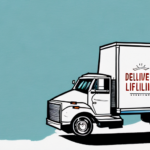Drop Off Your Donations in Fort Worth: Here's How
Do you have a pile of unwanted items cluttering your home? Why not give them a second life and donate them to a local charity? Not only will your generosity help those in need, but it also supports your community and the environment. In this article, we'll cover everything you need to know about donating in Fort Worth, from where and how to donate to safety measures and the impact of your donations.
Why Donating is Important
Donating is an essential way to give back to your community and help those in need. Your donations can make a significant impact on people's lives, from providing clothes and toys for children to helping families in crisis. Additionally, donating keeps unwanted items out of landfills, reducing the environmental impact of waste. According to the Environmental Protection Agency, Americans generated over 292 million tons of trash in 2018, with only 32% being recycled. By donating, you're not only helping others but also contributing to environmental sustainability.
Supporting Research and Development
Another reason why donating is important is that it supports research and development for various causes. Many organizations rely on donations to fund their research, find cures for diseases, develop new technologies, and improve the quality of life globally. By donating to these organizations, you're contributing to the advancement of science and technology, making the world a better place.
Personal Benefits of Donating
Donating can also have a positive impact on your own life. Studies have shown that giving to others can increase feelings of happiness and well-being while reducing stress and anxiety. By donating your time, money, or resources, you're not only helping others but also enhancing your mental and emotional health.
Where to Donate in Fort Worth
Fort Worth boasts a wide range of charities and non-profit organizations that accept donations. Some of the most popular options include:
- Goodwill Industries
- The Salvation Army
- The North Texas Food Bank
- The Humane Society of North Texas
- Habitat for Humanity
Each charity has specific donation guidelines and restrictions, so make sure to check their websites before donating. Many organizations also offer pickup services for large items like furniture, making it easier to donate your unwanted belongings.
It's important to note that some charities may accept non-monetary donations, such as clothing, household items, and even vehicles. Donating these items can help declutter your home while supporting a good cause. Additionally, some charities may offer tax deductions for certain types of donations, so be sure to keep track of your receipts and consult with a tax professional if needed.
Benefits of Local Donation Centers
Donating to local charities is a great way to support your community directly. These organizations often serve the needy in the surrounding area and provide assistance and support to local families. Furthermore, they promote sustainable living by offering second-hand items and reducing the amount of waste that ends up in landfills.
Economic Stimulus
Another benefit of donating to local charities is the stimulation of the local economy. When you donate to a local charity, you support a local business, which can help create jobs and boost the economy. Additionally, many local charities rely on volunteers to help run their operations, providing opportunities for community members to get involved and give back.
Personal Well-Being
Donating to local charities can also positively impact your own well-being. Studies have shown that giving to others can increase feelings of happiness and satisfaction and even improve physical health. By donating locally, you can feel good about supporting your community and making a difference in the lives of those around you.
What Items Can You Donate?
The specific items accepted for donation vary by organization, but most accept a similar range of items. Commonly accepted items include:
- Clothing, shoes, and accessories: Always in demand for individuals and families in need.
- Household items: Kitchenwares, small appliances, and bedding are frequently needed.
- Toys, books, and electronics: Often accepted, but always check with the organization first.
- Furniture: Items like couches, chairs, and tables may be accepted, though some charities have limited storage space.
Before donating electronics, confirm with the organization as many charities may not accept them due to safety and quality concerns. Sorting and ensuring items are in good condition can help streamline the donation process.
How to Prepare Your Donations for Drop-Off
When preparing your donations, ensure that most charities prefer items to be clean, undamaged, and in good condition. Here are some tips:
- Clean and repair: Wash clothing and linens, and repair any minor damages.
- Functionality: Ensure small appliances and electronics are in working condition with all parts included.
- Sort and label: Categorize your donations and label them to make it easier for volunteers to process and distribute.
Some charities may have specific guidelines or restrictions on what items they can accept. It's important to check with the charity beforehand to ensure that your donations will be accepted and utilized effectively. This information is usually available on their website or by contacting them directly.
Health and Safety Measures for Donating
Given the ongoing health concerns, many charities have implemented new safety measures for accepting donations. These measures may include:
- Appointments for drop-off: Some organizations require scheduled times to manage the flow of donations safely.
- Modified hours of operation: Adjusted to accommodate safety protocols.
- Item sanitation: Donated items may be sanitized or quarantined before handling.
It's also important to check if the charity has specific needs during this time, such as personal protective equipment (PPE) or cleaning supplies. Additionally, some charities may have shifted their focus to address new community needs, like expanding food bank services to support families impacted by economic challenges.
How Your Donations Help the Community
Your donations can make a real difference in the lives of those in need. Charities use your donated items to support their programs, including:
- Providing essentials: Clothes, toys, and household items for families in crisis.
- Supporting education: Providing school supplies, textbooks, and scholarships to students.
- Healthcare initiatives: Offering medical supplies and supporting healthcare programs for underserved populations.
By investing in these areas, your donations help create a brighter future for the next generation and improve the overall health and well-being of your community.
The Environmental Impact of Donating
Donating your unwanted items not only helps others but also reduces the environmental impact of waste. By giving items a second life, you keep them out of landfills and decrease the need for new products to be manufactured. This practice saves resources like energy and water and reduces greenhouse gas emissions, contributing to environmental sustainability.
Additionally, donating helps reduce the amount of waste that ends up in oceans. Items that are thrown away often end up in landfills and can be carried into oceans by wind or water, harming marine life and ecosystems. By donating, you're helping to keep these items out of landfills and protect our oceans.
Furthermore, many organizations that accept donations have recycling or repurposing programs for items that cannot be used as-is. This may include turning old clothing into rags or using scrap materials to create new products, promoting sustainable practices and further reducing waste.
Tips for Making the Most Out of Your Donation Experience
Donating can be a fulfilling experience. To maximize the impact of your donations, consider the following tips:
- Research charities: Find one that aligns with your values and priorities.
- Verify acceptance: Check with the organization to ensure they accept your items and that they're in good condition.
- Organize your donations: Sort and label items to make it easier for volunteers to process and distribute them.
- Donate regularly: Consistent contributions can maintain the impact of your generosity.
Another effective tip is to consider donating money instead of physical items. Monetary donations allow organizations to allocate funds where they're most needed and can be more efficient in their operations. Additionally, donating money can provide tax benefits for the donor.
Remember that donating doesn't have to be limited to material items or money. Donating your time and skills can also make a significant impact. Consider volunteering at a local charity or offering your professional expertise to a non-profit organization.
Supporting Fort Worth Charities Through Donations
Donating to local charities is an excellent way to support your community and those in need. Whether you're giving clothes, toys, or household items, your donations make a real difference in people's lives. By following the tips outlined in this article and understanding the impact of your donations, you can help create a better future for everyone in Fort Worth.
It's important to research and choose reputable charities to ensure that your donations are used effectively. Look for organizations with a clear mission statement and transparent financial records. You can also check with local government agencies or the Better Business Bureau to verify a charity's legitimacy. By taking the time to research and select the right charities, you can maximize the impact of your donations and make a positive difference in your community.






















